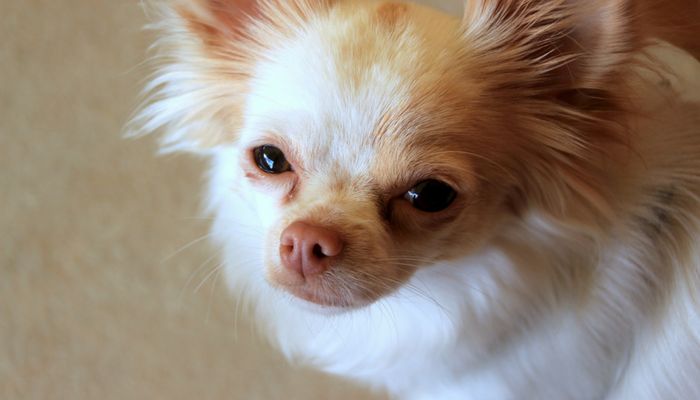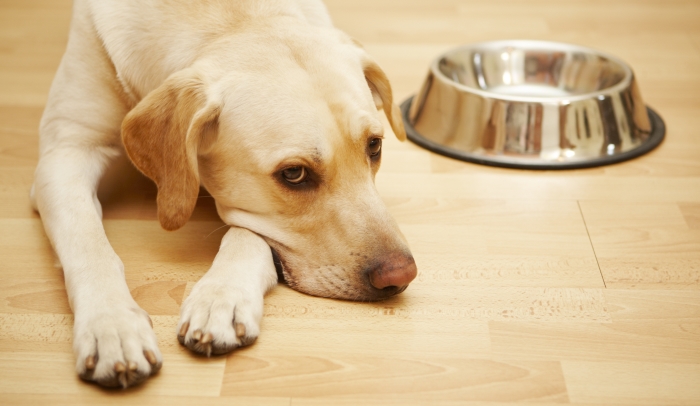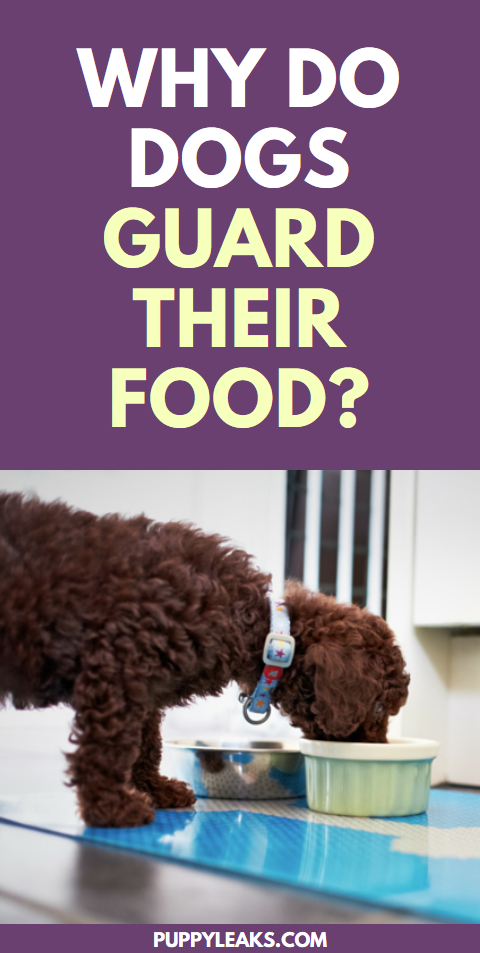[ad_1]
Does your canine get defensive if you method his meals? Does he stiffen up, growl, or even perhaps snap at you? That habits is named useful resource guarding, and with regards to canines meals is the most typical set off.
It’s an issue that many canine house owners face — myself included. Right here’s why canines guard their meals, and a few sources that will help you handle the habits.
Why Do Canines Guard Their Meals?
Guarding meals is a worry based mostly habits that some canines exhibit. Whereas it’s not a habits that’s fascinating within the residence it’s essential to keep in mind that it’s a regular, instinctual habits for canines. Useful resource guarding is a habits that helps animals out within the wild — those who efficiently guard their meals are those extra more likely to survive.
Guarding meals and extremely coveted objects is one thing canines have been doing for ages. Wolves wouldn’t be practically as profitable in the event that they didn’t have the flexibility to defend their sources. In a pure setting these adaptive traits give canines a bonus. – 5 Myths About Useful resource Guarding
Useful resource guarding in canines ranges from delicate to extreme. In delicate instances a canine would possibly get barely stiff as you method his meals bowl, and in additional extreme instances they may growl and/or chunk when approached. In case your canine is guarding his meals it’s essential to keep in mind that it doesn’t imply your canine is overly aggressive, nor does it that your canine is making an attempt to be extra dominant than you. It’s a worry based mostly habits that canines use to maintain others from taking away their meals or possessions.
The excellent news is that useful resource guarding might be managed, however the unhealthy information is that nobody is aware of precisely why some canines guard their meals and others don’t.
What we do know is that canines who guard their meals really feel insecure, and so they’re guarding it to maintain others from taking it away. Does that imply that you just in some way taught your canine to be nervous round meals? Not essentially. Meals guarding (additionally known as useful resource guarding) is considered attributable to each genetics & setting, what we check with as nature & nurture.
Right here’s a take a look at a number of the frequent theories as to why canines guard their meals, and a few ideas you may take to handle the habits.
Puppies Could Study Guarding by Competing With Littermates
Some consultants consider that meals guarding begins very younger, when puppies need to compete for restricted provides of meals resembling their moms milk or meals from a bowl. The puppies that eat probably the most develop the quickest, and the speculation is that these pups are being rewarded for consuming as a lot meals as they’ll subsequently establishing a historical past of being rewarded for monopolizing the meals for themselves.
Useful resource guarding could come up because of this from insecurity from competing for meals or being disadvantaged of sources, nevertheless it’s essential to notice that some canines who exhibit guarding have no historical past of neglect, abuse or deprivation.
A canine could be genetically inclined to protect, however relying how a lot he’s allowed to observe the habits all through his life additionally contributes to the severityof the issue. – Useful resource Guarding, Complete Canine Journal

When coping with a canine that guards their meals remember the fact that your canine will not be making an attempt to be overly aggressive or dominate you. Guarding is a worry based mostly habits that canines use to stop one thing worthwhile from being taken away. For extra info on find out how to assist handle your canines guarding take a look at 5 methods you may hep cut back useful resource guarding.
The Atmosphere Could Trigger Meals Guarding
Canines in shelters exhibit the next than regular charge of meals guarding (as a lot as 25%). However remember the fact that the shelter setting is an especially aggravating one, and the evaluation that canines get to charge their aggression with meals (sticking a rubber hand of their meals bowl) may not correlate to how a canine would react in a traditional setting. Canines in shelters may not know when and if their subsequent meal is coming, so their nervousness about it will increase.
Worry is the underlying reason for most types of canine aggression. It’s triggered by a stimulus that’s threatening to the canine. When the aggression is a direct response to a problem or confrontation, it could be known as defensive aggression. – Merck Veterinary Handbook
Many shelters have developed feeding packages that assist lower the quantity of meals guarding seen within the shelter by free-feeding their canines, giving them entry to a full meals bowl always and/or ensuring they’ve entry to meals on a constant foundation.
So whereas it’s true that many canines guard their meals whereas dwelling in a shelter setting, research have proven that the habits is now not noticed after canines are positioned into houses. In most cases canines positioned into houses now not present meals guarding after as little as 3 weeks, and plenty of shelters report success charges of over 90%.
As a result of there are a lot increased cases of reported guarding in shelters it’s straightforward to see how a lot of an affect setting can play in a canines habits.
Genetics Could Affect Meals Guarding
Your canines genes can have an effect on their behaviors, however sadly with regards to guarding there’s a critical lack of analysis. We all know {that a} Border Collie’s genes are liable for his pure herding intuition, and that livestock guardians have an inclination to guard their flock in opposition to predators. However with regards to meals guarding we don’t have definitive research that may level to sure breeds being extra susceptible to the habits.
Researchers have tried to find out what genes could also be liable for elevated aggression in canines, however to this point there’s no breed-specific outcomes price noting. On the subject of useful resource guarding particularly there haven’t been any definitive research on the position of genetics.
Based mostly on the little analysis we’ve and my very own experiences with a whole bunch of RG instances (1,000’s?), that there’s a genetic element to the habits. I’ve labored with litters of 11 canines by which the most important and strongest (and first to get to the nipple) pup grew to become the RG canine very early in life. Then again, there may be a substantial amount of analysis on a wide range of species that reminds us that have performs a major position in “profitable” and “shedding” competitions. – Useful resource Guarding: Remedy & Prevention, Patricia Mcconnell
Conclusion
Sadly we don’t know the precise motive why some canines guard their meals and others don’t, although there are some fairly intriguing theories. What we do know is that canines who guard their meals aren’t unhealthy, faulty or aggressive — they’re appearing naturally, although admittedly it’s a problem that may and must be addressed.
In case your canine guards his meals don’t be afraid to hunt out knowledgeable coach for assist. I’ve additionally included some nice sources beneath that will help you perceive the habits and provide you with a plan to assist modify the habits.
Assist & Sources for Canines That Guard Their Meals
[ad_2]
Supply hyperlink

